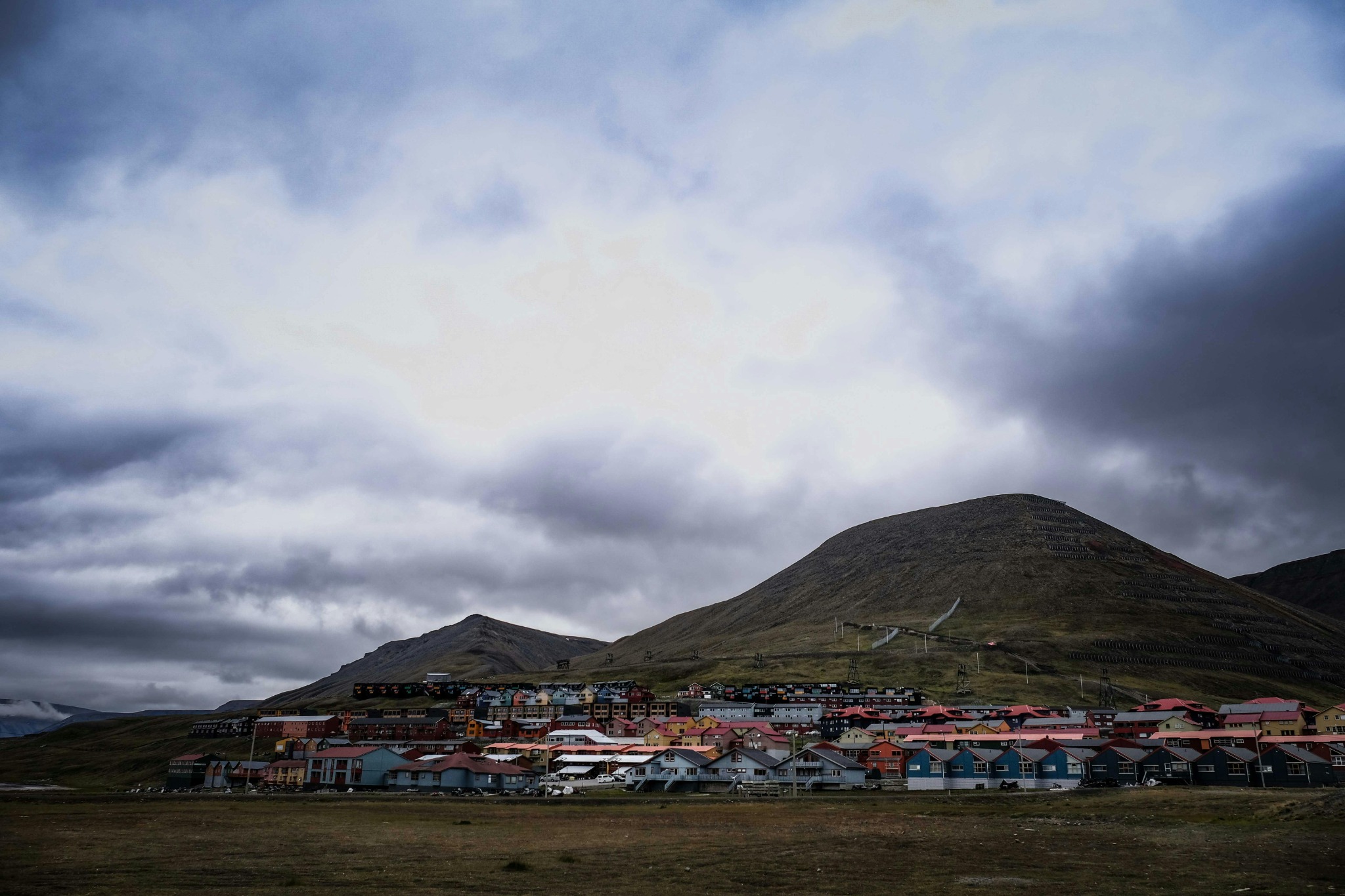
Svaltupie
By FSG
Eine Insel zwischen menschlicher Schonung und natürlich Bedrohung
Menschen im Spagat zwischen endloser Nacht und ewigem Tag, zwischen schwelendem Wandel und einem fernen, heißkalten Konflikt, der sich doch manchmal so nah anfühlt. Was treibt die Menschen um, die hier leben? An einem Ort, der langsam vom Über- in das Erleben driftete?
Wirft man einen Blick auf Spitzbergen – und im Besonderen seine Hauptstadt Longyearbyen – erscheint diese kleine, norwegische Exklave beinahe wie eine Utopie im (ewigen) Eis. Die 2500 Bewohner blicken auf keine nennenswerte Kriminalität, das Versprechen der Grenzenlosigkeit und ein harmonisches Zusammenleben von 40 verschiedenen Nationen. Hinzukommen Tatsachen, die sich wie der erfüllte Traum eines neoliberalen Geistes anmuten: niedrige Steuern, hoher Lebensstandard und faktisch keine Arbeitslosigkeit. Ist das der letzte Ort, an dem sich Leistung noch lohnt?
Augenscheinlich ist das Leben hier geprägt von einer Verschonung der üblichen menschlichen Übel. Dazu ist nicht mal das Verschließen vor Armut, Diskriminierung und Untätigkeit nötig, wie es allzu gern in bürgerlichen Ansiedlungen festländischer Spießigkeit gepflegt wird. “Du siehst den Wald vor lauter Bäumen nicht” ist auf Spitzbergen sprichwörtlich und wortwörtlich nur Laute ohne Sinn.
Nur die Medien lassen zumal einen Hauch von Realität durch die Gedanken wehen. Doch schließt man die geistigen Fenster und lenkt den Blick gen Norden, wird aus dem stärksten Sturm ganz schnell ein fast schon angenehmes Rauschen. Und selbst wenn nicht, ist doch leicht gedacht: Uns geht’s gut, und irgendwie fühlt sich’s noch besser an, wenn denen nicht.
Auch auf Spitzbergen ist jedoch kein Sein ohne Kontraste. Denn dem alle steht gegenüber das natürliche Übel der Umgebung. Hier trachtet nicht der Mensch dem Menschen, sondern der Bär, der Frost oder die See. Manch einer möchte sagen: Ist das nicht die natürliche Art der Dinge? Mensch gegen Natur – in Kampf und Einklang. Romantischer Gedanke, doch war nicht seit den ersten Schritten der Savanne der Mensch dem Menschen doch immer sein größter Neider? Ist das nicht traurig, aber wahrer Weise die Essenz menschlichen Seins? Das Schwimmen gegen den Strom der eigenen Dekonstruktion?
Alles zurück auf Anfang. Spitzbergen – eine ideale Gesellschaft im Auge des globalen Sturms?
Ja und nein. Der Schein mag trügen. Frei nach athenischer Tradition wird alles, was Ordnung und Frieden stören könnte, verbannt. Ob monetäres, gesundheitliches oder manierliches Defizit – der Flughafen ist nah, der Abschied noch näher.
Manch anderer würde anmerken: Das ist der Preis, den jeder hier gewillt sein muss zu zahlen. Doch warum fühlt sich dieser Preis so merklich gestaffelt an – wie die unfreie Wahl eines sich selbsteigernden Abomodells? Was darf es sein? Das Norge Premium, das Euro Plus oder doch nur das Global Basic Modell?
Svaltopia
An island between human sparing and natural threat
People in a balancing act between endless night and eternal day, between smouldering change and a distant, hot and cold conflict that sometimes feels so close. What drives the people who live here? In a place that has slowly drifted from survival to experience?
If you take a look at Svalbard — and its capital Longyearbyen in particular — this small Norwegian exclave almost seems like a utopia in the (eternal) ice. The 2500 inhabitants can look back on no crime to speak of, the promise of borderlessness and a harmonious coexistence of 40 different nations. Added to this are facts that seem like a neo-liberal's dream come true: low taxes, a high standard of living and virtually no unemployment. Is this the last place where performance is still worthwhile?
Apparently, life here is characterised by a sparing of the usual human ills. It is not even necessary to shut oneself off from poverty, discrimination and inactivity, as is all too often the case in middle-class settlements of mainland philistinism. The proverb "You can't see the forest for the trees" on Svalbard sounds meaningless.
Only the media allows a hint of reality to waft through the mind. But if you close the mental windows and turn your gaze northwards, the strongest storm quickly turns into an almost pleasant murmur. And even if not, it's easy to think: we're fine, and somehow it feels even better when they're not.
But even on Svalbard there is no being without contrasts. For all this is contrasted by the natural evil of the environment. Here, it is not man who is after man, but the bear, the frost or the sea. Some might say: isn't that the natural way of things? Man against nature — in battle and harmony. A romantic thought, but hasn't man always been man's greatest envy since the first steps of the savannah? Isn't that sad, but truly the essence of human existence? Swimming against the tide of our own deconstruction?
Everything back to the beginning. Svalbard — an ideal society in the eye of the global storm?
Yes and no. Appearances may be deceptive. In the Athenian tradition, everything that could disturb order and peace is banished. Whether monetary, health or behavioural deficits — the airport is close, the farewell even closer.
Some would say: This is the price everyone here must be willing to pay. But why does this price feel so noticeably staggered — like the unfree choice of a self-improving subscription model? What will it be? The Norge Premium, the Euro Plus or just the Global Basic model?

Post a comment